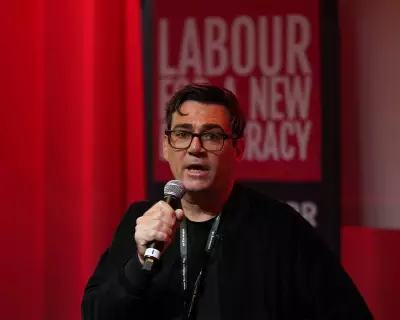
The BBC is facing fresh controversy and accusations of self-censorship after a prominent Dutch writer claimed the corporation removed a key criticism of Donald Trump from a prestigious lecture.
The Censorship Allegation
Rutger Bregman, the historian and author invited to deliver this year's BBC Reith Lectures, stated that the broadcaster deleted his description of Trump as 'the most openly corrupt president in American history' from his recorded address. Bregman revealed that this decision was made against his wishes and came from the highest levels within the BBC, leaving him 'genuinely dismayed'.
The contentious line was part of a lecture the BBC had commissioned, which underwent full editorial review and was recorded four weeks prior in front of a 500-strong audience at the BBC Radio Theatre. Bregman expressed his disappointment, emphasising that his concern was not about people disagreeing with his words, but about the self-censorship driven by fear.
Broader Context and BBC's Legal Woes
This incident occurs while the BBC is already under significant pressure from the White House. Donald Trump has threatened to sue the broadcaster for up to $5bn over an edit made by Panorama of one of his speeches concerning the Capitol riots in January 2021. That previous editorial controversy led to the resignation of then director general Tim Davie and BBC News chief Deborah Turness.
In response to Bregman's allegations, a BBC spokesperson confirmed the edit, stating: 'All of our programmes are required to comply with the BBC’s editorial guidelines, and we made the decision to remove one sentence from the lecture on legal advice.' The lecture is broadcast on the BBC World Service, which airs in the United States.
A Lecture Series on Elite 'Cowardice'
The irony of the situation was not lost on Bregman. His Reith Lectures, entitled 'Moral Revolution' and recorded in London, Liverpool, Edinburgh, and the US, focus precisely on the 'paralysing cowardice' of today's elites. He warned of a 'broader resurgence of fascism across the western world' and criticised institutions for 'bending the knee to authoritarianism'.
Bregman, who rose to international prominence in 2019 after challenging billionaires on tax avoidance at the World Economic Forum in Davos, expressed his sadness over the affair. He noted the particular honour of delivering the lectures, as the first Reith lecturer in 1948 was his intellectual hero, the free speech advocate Bertrand Russell.
Despite the dispute, Bregman hopes people will still listen to the lectures, believing their message about elite cowardice is more relevant than ever. He shared the details with the hope that transparency would ultimately strengthen democratic culture.





